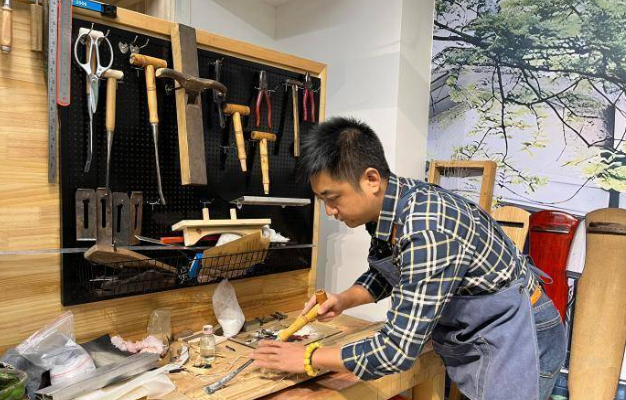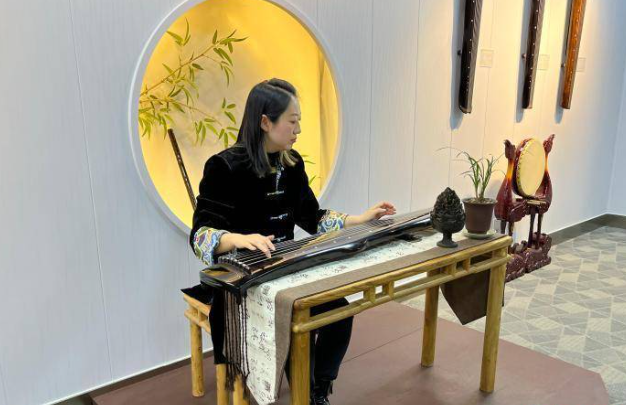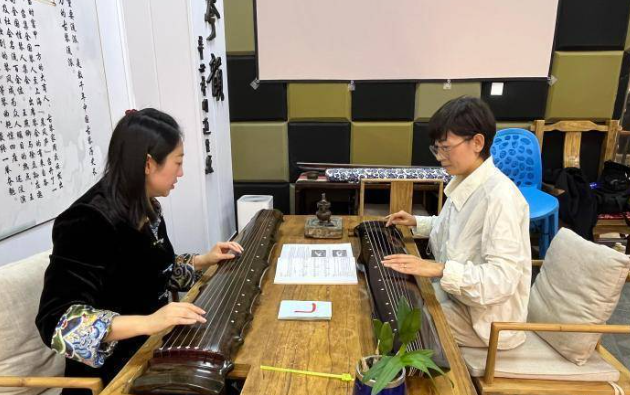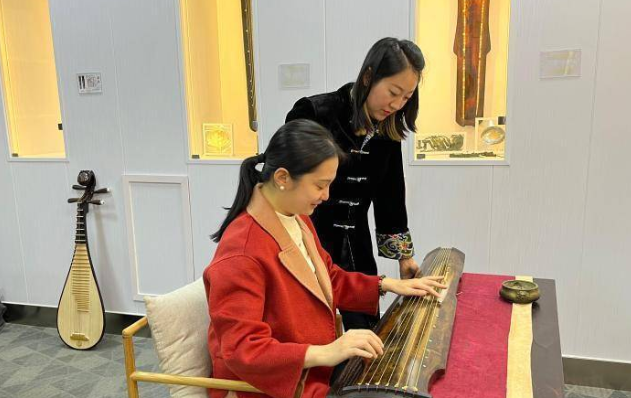The ancient zither with a history of more than 3000 years is becoming popular among young people in China
High mountains and flowing water meet bosom friends. This is the story of Yu Boya and Zhong Ziqi. During the Spring and Autumn Period and the Warring States Period, the two became bosom friends because of the music "High Mountains and Flowing Water". Later, due to Zhong Ziqi's illness, Yu Boya decided not to play the piano for life.

This story moved countless people, but the guqin they used to touch was elegant and mysterious, which was rarely known. Today, the ancient zither, which has a history of more than 3000 years, is becoming increasingly popular in China and among young people.

The ancient zither, also known as the seven string zither, is one of the earliest plucked instruments of the Chinese nation. As the first of the four arts of "zither, chess, calligraphy and painting", the ancient zither is a treasure of Chinese traditional music culture. In 2003, Chinese guqin art was selected as a world cultural heritage.
In Shenyang, Liaoning Province, there are several young people in the Guqin Culture Exhibition Hall. They yearn for the Guqin and are deeply attracted by its elegant style and profound cultural heritage.
Qu Teng, a Chinese teacher in the "post-80s" middle school, is a fan of Chinese traditional culture. She believes that compared with the pipa, zither and other national instruments, the ancient zither can cultivate one's moral character and improve one's cultural quality in "pleasing oneself and others". "Guqin is a musical instrument with high artistry and culture. The key to learning Guqin is how to express the connotation of ancient music with your own feelings." Qu Teng said so.

"Learning Guqin has taught me to be 'quiet' and 'far'. As long as I calm down, I will have more gains." Yu Yakun, a full-time mother of the "post-90s" generation, originally intended to learn the ancient zither from her children. She hopes to tell them the meaning of perseverance through her attitude towards learning the ancient zither. Yu Yakun said, "I work hard at piano practice, and the children insist on dancing. We encourage each other and make progress together."
If it is said that the cultivation of understanding and self-cultivation is the minority cultivation in the heritage of the ancient zither, as a valuable world cultural heritage, it is imperative to expand its audience to the contemporary public in the protection project of the ancient zither heritage.
Li Xu, the director of Shenyang Guqin Culture Exhibition Hall, is a "post-80s" and senior communicator of Guqin culture. She has been engaged in Guqin teaching for more than five years. In order to spread the guqin culture, in early 2022, Li Xu and a number of guqin friends established the Shenyang Guqin Culture Exhibition Hall. "The exhibition hall provides a larger platform for guqin enthusiasts and hopes that guqin can enter the public's view."
According to Li Xu, over the years, many guqin lovers have come to her to learn how to play. Among them, there are children as young as teenagers, as old as 70, and more foreign friends who love Chinese traditional culture. "Hu Bo, a student from Cambodia, brought the Guqin culture to Cambodia and was loved by many local people."

Besides the propagator of guqin culture like Li Xu, there are also inheritors. Liu Xiaofeng, a 43 year old inheritor of intangible cultural heritage of traditional ancient zither making techniques, has made zither from generation to generation, and has a history of more than 100 years in Northeast China. As the fourth generation inheritor of traditional ancient zither making techniques, Liu Xiaofeng has always been committed to making ancient zither suitable for the climate in Northeast China. "The timbers must be made of hundreds of years old beams to make the timbre transparent and stable, and the thickness of the details depends on years of experience and craftsmanship..." Liu Xiaofeng talked about piano making endlessly.
Liu Xiaofeng said that learning the zither is a kind of mentality, which can make people calm and calm down. He hoped that contemporary young people would regard learning the zither as a way of life rather than a skill.
Lin Haiying, the fourth generation inheritor of Mei'an School of Qin, said that there are many factors that have caused the craze, but the important factor is based on the artistic charm of the zither itself. Lin Haiying said frankly that guqin can help people reduce their impetuosity, and the pace of modern urban development is fast. More and more young people choose to fill their spare time with guqin, and they choose to enrich their cultural life with active and healthy leisure ways, so that guqin culture can be inherited and carried forward among young people, which is highly commendable.
 渝公网安备 50010702504639号
渝公网安备 50010702504639号